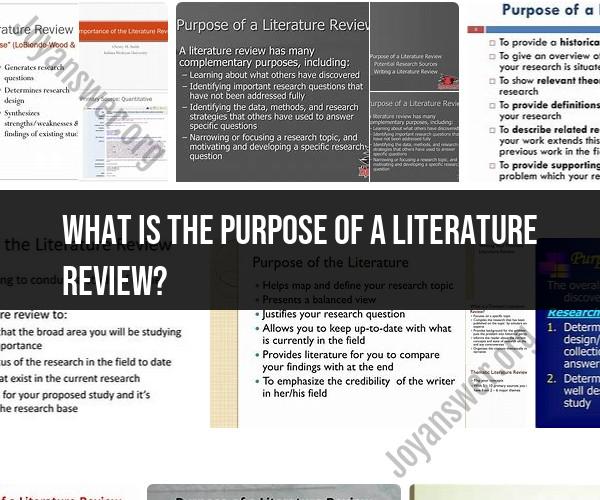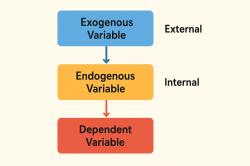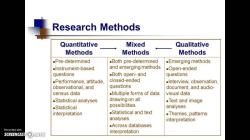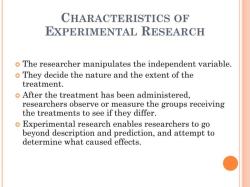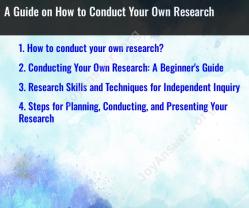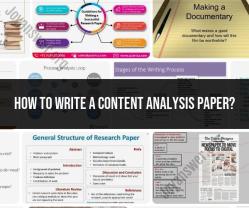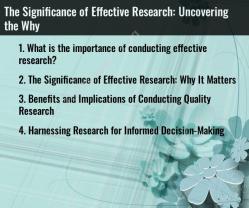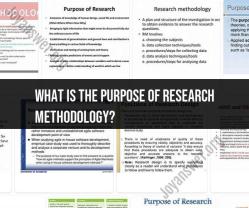What is the purpose of a literature review?
The purpose of a literature review is to provide a comprehensive and critical summary of existing research, scholarly articles, books, and other sources on a specific topic or research question. Literature reviews serve several important functions in academic, research, and professional contexts:
Establishing Context: A literature review places the research topic or question within the broader context of existing knowledge. It helps readers understand what is already known and what gaps or unanswered questions exist in the field.
Identifying Key Concepts and Theories: It identifies the key concepts, theories, and frameworks that are relevant to the research topic. This helps researchers build a solid theoretical foundation for their own study.
Highlighting Trends and Debates: A literature review outlines the major trends, debates, and discussions within the field. It shows the evolution of ideas and provides insights into the ongoing conversations among scholars.
Identifying Methodologies: Researchers can learn about the research methods and methodologies used in previous studies. This informs the choice of research methods for the new study.
Evaluating Sources: Literature reviews critically evaluate the quality, credibility, and reliability of the sources reviewed. This helps researchers identify authoritative sources and avoid unreliable ones.
Synthesizing Knowledge: A well-done literature review synthesizes and organizes the findings from various sources, presenting a coherent and integrated view of the existing literature.
Identifying Gaps and Research Questions: By examining the literature, researchers can identify gaps in knowledge and formulate research questions or hypotheses that contribute to the field.
Supporting Hypotheses or Arguments: Literature reviews can provide evidence and support for the hypotheses or arguments put forth in a research study. They demonstrate that the study's approach is grounded in existing scholarship.
Avoiding Duplication: Researchers can ensure that their work is original and not duplicative by reviewing what has already been done in the field.
Informing Decision-Making: Beyond academic research, literature reviews are used in policy development, business decision-making, and other areas to inform strategies and actions based on the best available evidence.
Educational and Pedagogical Purposes: In academic settings, literature reviews teach students critical thinking, research skills, and the ability to synthesize information, which are valuable skills for future research and professional endeavors.
Providing a Starting Point for Further Research: Literature reviews often include lists of references that serve as a valuable starting point for researchers who want to delve deeper into a specific topic.
Overall, a literature review is a vital component of scholarly and research work. It not only contributes to the depth and rigor of academic research but also helps researchers situate their work within the larger body of knowledge and make informed decisions about their research design and objectives.
